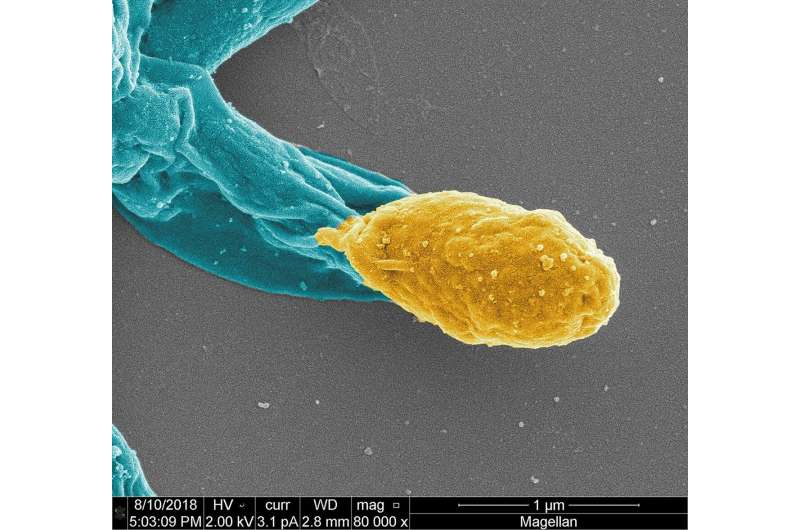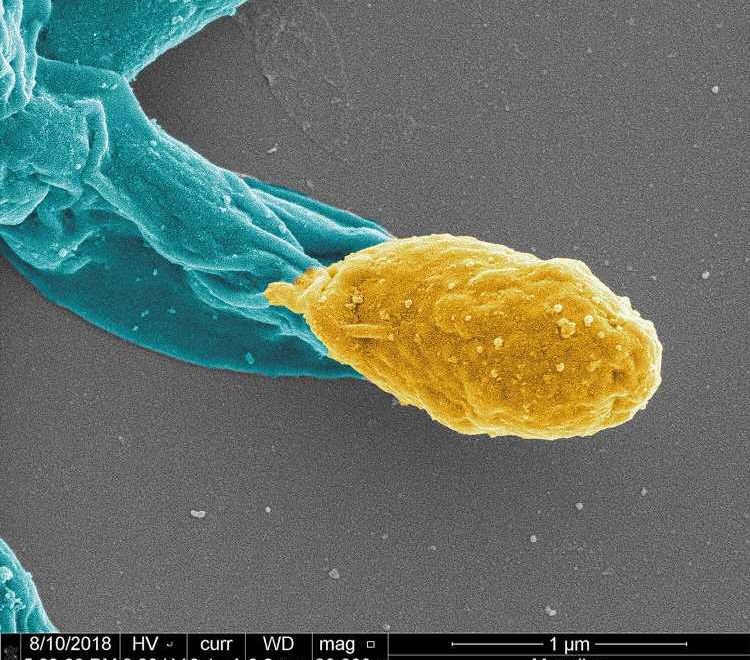
A team of biochemists at the University of Notre Dame has found a possible new way to treat patients infected with Clostridioides difficile, a type of bacteria that causes serious gastrointestinal problems. In their study, reported in Proceedings of the National Academy of Sciences, the group searched medical databases for antibacterial molecules that might work better for patients with C. difficile infections.
C. difficile infections can run the gamut from causing minor annoyance to setting off life-threatening events—every year, they kill approximately 13,000 people. Once infected, (very often while hospitalized for something else) patients are typically given an antibiotic to treat the infection. Unfortunately, antibiotics are becoming ineffective as C. difficile develops resistance.
Currently, there is just one that is in use: vancomycin. Another problem is that C. difficile produces spores that are not killed by the antibiotic, which means that many people suffer reinfections. Vancomycin does not work well in such patients, and works even less well in subsequent infections. For these reasons, the team in Indiana set themselves the goal of finding a more effective treatment for such infections.
The work involved searching antibacterial databases looking for molecules that are known to bind to a specific protein associated with C. difficile. This led to two compounds: oxadiazole 1 and 2. Testing in vitro showed that both were effective at killing C. difficile when administered at the same dosage level as vancomycin.
The team next tested both to see how quickly they are absorbed into the bloodstream if given orally. Oxadiazole 1 was absorbed quickly, which made it unsuitable for combating bacteria in the gut. Oxadiazole 2, on the other hand, was absorbed slowly, making it an ideal candidate for a new therapy to treat C. difficile infections. In mice, it prevented death 30% better than vancomycin.
The study also found that oxadiazole 2 helped prevent weight loss better than vancomycin. And best of all, fecal tests showed no evidence of spores—after three weeks of testing, none of the mice had reinfections.
More information:
Jeshina Janardhanan et al, A dual-action antibiotic that kills Clostridioides difficile vegetative cells and inhibits spore germination, Proceedings of the National Academy of Sciences (2023). DOI: 10.1073/pnas.2304110120
Journal information:
Proceedings of the National Academy of Sciences
Source: Read Full Article
